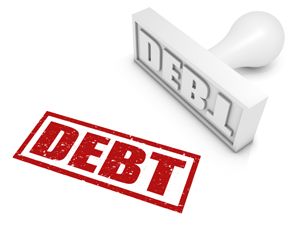Top Class Actions’s website and social media posts use affiliate links. If you make a purchase using such links, we may receive a commission, but it will not result in any additional charges to you. Please review our Affiliate Link Disclosure for more information.

United Collection Bureau, Leading Edge Recovery Solutions LLC, and PYOD LLC are debt collectors. The FDCPA lawsuit alleges that the debt collection agencies participated in unlawful debt collection practices in regards to consumers’ rights to not disclosed information to third parties or make any false representations as to the actual debt owed.
Plaintiff Eloise Chin alleges in the FDCPA United Collection Bureau lawsuit that in 2013, she began receiving several debt collection letters informing her of the debt owed, stating the creditor as PYOD LLC but requesting payment be made to a different debt collector, Leading Edge Recovery Solutions, subsequently misleading Chin as to who she owes the debt to.
Furthermore, she claims that the amount owed indicated on the debt collection letters changed, confusing her as to what amount was actually owed. She asserts in the FDCPA lawsuit that amounts sought by the defendants in their debt collection letters include rates of interest and various fees not expressly authorized by the agreement permitted by law, thus in direct violation of FDCPA guidelines.
Chin also alleges that since the debt collection letters identify PYOD LLC as the “current creditor” but the debt collection letters stated payment should be remitted to Leading Edge, this violates FDCPA laws as a debt collector is forbidden from discussing a consumer’s debt with any third party.
What is the Fair Debt Collection Practices Act (FDCPA)?
The FDCPA was passed by Congress in 1978 to combat the unfair debt collection practices used by many creditors and debt collectors. Although debt collection is perfectly legal, the FDCPA has established rules for the collection of consumer debts and provides protections to debtors by enabling them to challenge creditors and determine the validity and accuracy of asserted debts. Despite these debt collection laws, many debt collectors reportedly engage in illegal conduct in an attempt to collect on debts.
Under the FDCPA, a debt collector is anyone who regularly collects debts that are owed to others, including debt collection agencies, companies that purchase and attempt to collect on delinquent debts, and debt collection lawyers who help companies who help creditors, debt buyers, or even debt collection firms.
Many states have enacted their own state versions of the FDCPA that apply to and regulate not only debt collectors but also creditors, including banks, credit card companies, etc.
If a debt collector is found to have violated the FDCPA, the debtor is entitled to receive $1,000 in statutory damages, plus any actual damages that they have suffered, for each violation.
Chin is seeking all actual damages and statutory damages of $1,000.00 for United Collection Bureau’s alleged violation of the FDPCA and all reasonable court costs. She has demanded a jury trial for this case.
The FDCPA United Collection Bureau Debt Collection Lawsuit is Elois Chin v. United Collection Bureau Inc, et al., Case No. 1:14-cv-00404 HG KSC, U.S. District Court, District of Hawaii.
Join a Free Unfair Debt Collection Class Action Lawsuit Investigation
If a lender or debt collector engaged in unfair debt collection practices, you may have a legal claim and could be owed compensation for violations of the Fair Debt Collection Practices Act (FDCPA).
DISCLAIMER: Debt collection itself is not illegal. However, debt collection firms collecting on consumer debts must adhere to the FDCPA. Even though debt attorneys are investigating these companies, their debt collection practices may be legal.
ATTORNEY ADVERTISING
Top Class Actions is a Proud Member of the American Bar Association
LEGAL INFORMATION IS NOT LEGAL ADVICE
Top Class Actions Legal Statement
©2008 – 2024 Top Class Actions® LLC
Various Trademarks held by their respective owners
This website is not intended for viewing or usage by European Union citizens.














